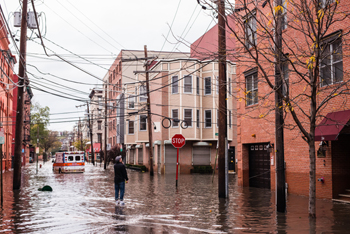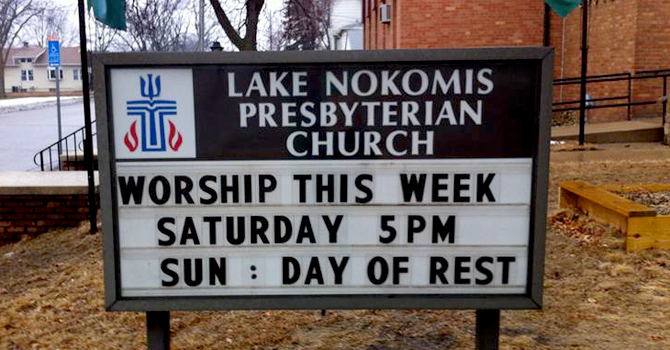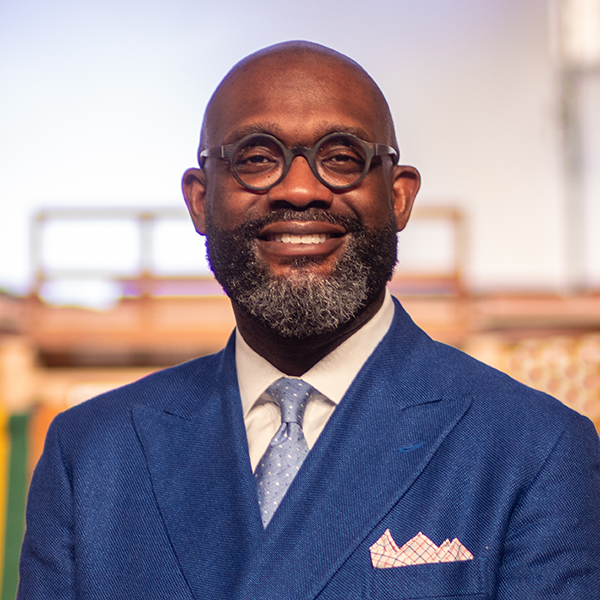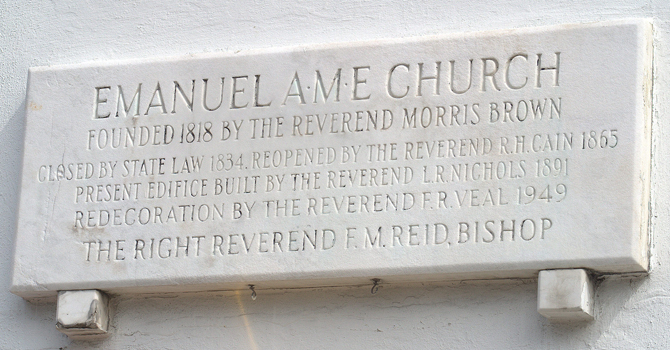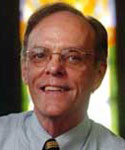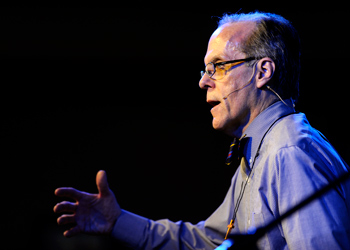Editor’s note: Faith & Leadership offers sermons that shed light on issues of Christian leadership. This sermon was preached at Marble Collegiate Church, New York City, on Nov. 4, 2012, the first Sunday after Hurricane Sandy made landfall on the East Coast. A video of this sermon is on the church's website.
A week ago, we thought we would be listening to Dr. Anna Carter Florence right now, preaching a stirring sermon for All Saints’ Sunday. However, last Sunday we did not know that we would experience a crisis of unprecedented proportion this week. So today it made more sense for us to gather as family. We can entertain guests later. For today, however, we need to be together as family -- to process, and pray, and just love one another.
I’m not going to recount what you already know -- what you have seen on TV, read in the news or lived through. We have all witnessed the Jersey Shore that was washed away, the fires in Breezy Point, the waters filling our subways and PATH, the homes destroyed on Staten Island and Long Island, the businesses swallowed up at Coney Island and Battery Park, the dangling crane, the fears, the tears, the enormity of it all.
But, as your pastor, I want to make four simple observations this morning.
We survived.
Admittedly, for a while Monday night, it felt like the storm would win. The disciples felt the same way in our morning lesson. They thought they were going to die: “Teacher, do you not care if we perish?” They thought the storm would kill them -- but it didn’t. And it didn’t kill us, either. Marble Collegiate Church is still standing here, as it has on this corner since 1854. And you and I are still sitting inside it, a little the worse for wear, but present and alive.
[New York] Mayor [Michael] Bloomberg was correct when he observed that this storm was the strongest we’ve ever seen in this city, but New Yorkers are stronger than the hurricane was! And the same can be said, of course, of our neighbors in Connecticut and New Jersey, and as far south as the West Virginia mountains and the Carolina shores.
You folks lived through 9/11. You will live through a hurricane. And whatever other storms our city faces in the future -- or our church, or we as individuals -- you somehow will be given sufficient strength to endure.
Recently, my wife and I were in the second-worst airline flight I have ever experienced. Our plane was bounced around like a basketball. During one of the rockiest moments, Page reached over and grasped my arm (with sufficient strength to cut off anyone’s circulation) and said, “I cannot do this!” I understood her anxiety. But the truth is, at 35,000 feet, I couldn’t come up with another option. Some things we go through simply because there is no way to go around them.
But “through” is a terribly important word. No tragedy is forever. It may not be pleasant or desired, and there are aftereffects that can be painful. But the words attributed to King David are crucial: “Yea, though I walk THROUGH the valley of the shadow of death, I will fear no evil.” Sooner or later, we do get through. No matter how desperate the storm on the Sea of Galilee seemed, the disciples survived. And this week, so did we.
Valuable lessons will be learned from this experience.
In one of his press conferences, [New York] Gov. [Andrew] Cuomo said, “It seems like now we have the storm of the century every two years!” Then he added, “But as the global climate changes, we will learn to change with it so as to be prepared and protected.” He was saying that we will learn lessons from this experience. In fact, we already have.
For example, despite the fact that we are a coastal city, flooding has never been a huge issue here. So up till now, backup generators have always been placed in basements. However, now that we know that floods are and will be an issue, builders and engineers will put backup generators above flood levels so that hospitals will not have to evacuate again.
We will learn from this. Architects and builders will learn. Transportation and communication personnel will learn. The public will learn that when government officials say we need to evacuate, they know what they’re talking about. Thus, lives will be saved next time around.
One of the valuable lessons we learned is something we already knew, but this storm reminded us. [New Jersey] Gov. [Chris] Christie said it in a news conference: “There is a time for sorrow, and that time is now. But that time is not forever. Our sorrow will not displace our resilience!”
You folks are made of tough stuff. Bruised? Yes. Battered? To be sure. But when the waters receded, you were still standing. “Our sorrow will not displace our resilience!” Valuable lessons will be learned, and have been learned, from this experience.
Nature’s worst revealed humanity’s best.
It always does. In our four years together, I have witnessed you stand up and step forward in generous and loving ways for the people of Haiti, the people of Japan, the people of Prattsville, the hungry children in Somalia -- the list goes on and on.
Today, in a special offering, you will do so again for our neighbors in the tri-state area. But isn’t it inspiring to realize that just as you have stood up and stepped forward for others, today others all across the country are standing up and stepping forward for us?
Our mayor and our governor told stories of the bravery of first responders who walked into the teeth of the storm to rescue people, risking their lives for others whose lives were at risk. Offers have come in from all over the nation -- as far away as Texas and California -- from power companies, ambulance providers, Red Cross volunteers. Federal and local elected officials have stepped up to the plate, putting partisan politics behind them and joining hearts and hands to help people.
The general secretary of our denomination sent out an email to church members from coast to coast while the winds were raging and the waves were rising, asking people to pray for us and promising that Church World Service would be there to help those who suffered losses. Nature at its worst has revealed humanity at its best.
During the height of the storm, Page said to me, “Do you hear someone yelling?” I answered, “No -- all I hear is the wind howling.” She said, “I hear someone calling for help.” So we went to the sliding glass doors on our balcony. We overlook FDR Drive, which by then had become part of the East River.
From there we saw a taxi stranded in the rising waters, waters already almost to the car’s window level. The driver was yelling for help. It was a critical moment. The waves were whipping around his car. Page began to whistle at him, letting him know that someone saw him. I was feverishly dialing 911.
But suddenly she said, “Wait! Look at that.” We saw a man appear out of nowhere, almost like an angel, wading through those angry waters, two steps forward, one step back. He was calling out to the driver, “Hold on! Hold on!” And he reached the car, one stranger risking his life for another, wrapped his arm around the driver’s shoulder and slowly, laboriously, walked him back to safety.
Some of you stayed here in Bay Hall to welcome people from our neighborhood. You served them coffee, showed them to the restrooms, helped them power up their cellphones and their laptops and their souls! Many of them said, “It means so much to be in a place where there is light, where there are people, and where we feel safe.” It was the church being the church.
One of our members was without power for days. As the food in his freezer thawed, he used his gas stove to cook it and then to distribute it to the elderly or vulnerable in his apartment building.
I personally have received emails and phone calls this week from people all across America. Some I have known for years. Others I have never heard of. But all contacted me to say, “We know what your people are going through. How can we help? What do you need? What can we do?”
One of the silver linings of a tragedy like this is that it restores our faith in people. Nature at its worst revealed humanity at its best.
Someone was in the storm with us.
I quoted part of a text from the Twenty-third Psalm earlier. But let me quote the whole text: “Yea, though I walk through the valley of the shadow of death, I will fear no evil: FOR THOU ART WITH ME”!
That’s how we get through life’s valleys -- because Someone who loves us is with us. And that’s how we survive life’s storms -- because Someone bigger than the winds and the waves is in the boat beside us.
Mark said: “A furious storm arose, and the waves broke over the boat, so that it was nearly swamped. Jesus was in the stern, asleep. … The disciples woke him and said, ‘Teacher, do you not care if we perish?’ And he got up and rebuked the wind and said, ‘Peace! Be still!’ … And he said to his disciples, ‘Why are you so afraid,’” when I am in the boat with you?
It’s an interesting scene. I’ve always wondered, when Jesus said, “Peace! Be still!” if he was talking only to the winds and the waves or perhaps also to the disciples. They were fishermen, for the most part. They understood that violent storms descended quickly on the Sea of Galilee and left just as quickly. Storms come. It’s the way life is. But storms do not last forever.
Is it possible that Jesus was speaking primarily to the disciples? “Hang in there. This storm will end. But while the winds rage and the waters rise, I am here with you. And as long as I am with you, you can live through any storm.”
That’s our message. In this life, storms come. Winds rage. Waters rise. But we face it and survive it because Someone who loves us, who is bigger than anything life throws our way, is always in the boat with us.
On All Saints’ Sunday, it is our tradition to read the names of our church members who transitioned in the past year from this world to God’s world. You heard those names read earlier, names of good people. Lovely people. Irreplaceable people. Each of them left behind loved ones whose worlds are not the same now. They are struggling through the deep waters of loss and grief. What is God’s word to those who mourn?
Over in Hoboken, which is still so ravaged by the hurricane, an aging woman was interviewed this week. She is at a temporary shelter. The reporter asked if she had any news about her home.
The woman replied, “No. It may be gone; I don’t know. But everything will be fine.” The reporter then complimented her spirit of calm and courage, and the woman answered, “Many years ago, my son was killed in the war. A few months later, my husband died. That’s when I discovered that when they went to be with God, God came to be with me. God got me through that; God will get me through this. Everything will be fine.”
It was one of the most inspiring sermons I have ever heard. “When they went to be with God, God came to be with me.” She had found that when the winds rage and the waters rise, Someone is in the boat with us, and that is our salvation. That is the healing news, the good news, on All Saints’ Sunday. “Yea, though I walk through the valley of the shadow of death, I will fear no evil: FOR THOU ART WITH ME”!
We’ve been through a tough week, and there is still so much to be done. We are a bit the worse for wear. We have suffered losses, some severe, but even in the midst of it there are some things we can affirm:
We survived.
We will learn valuable lessons from this experience.
Nature’s worst revealed humanity’s best.
And whatever storms may come our way, Christ is always in the boat with us.
And his voice speaks to us with comfort, even as it did to the disciples long ago: “I’m here. I’m beside you. ‘Peace! Be still!’ It’s going to be OK.”


